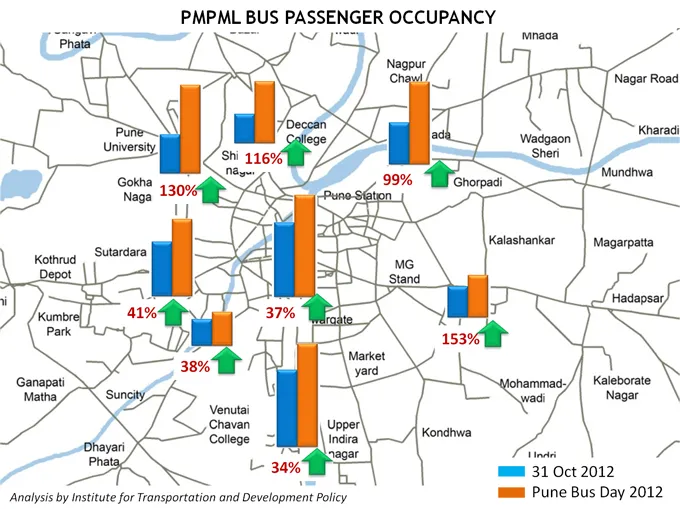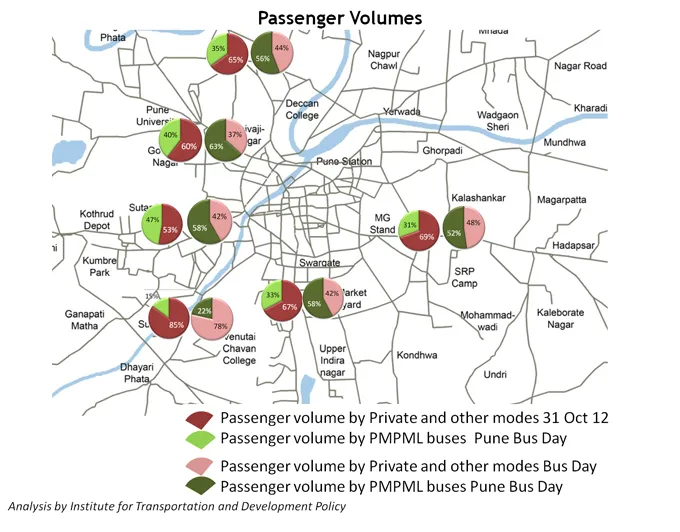Written by Kumar Manish
On a typical day, old Mumbai Pune Highway connects the Indian cities of Pune and Pimpri Chinchwad with long snarls of traffic jams. For one day, however, the road was free from traffic chaos and had a steady flow during morning peak hour on Pune Bus Day, an initiative to promote and popularize public transport in the city. Various government offices and NGOs worked together to encourage commuters to leave cars at home and try the bus for a day, with the intention of demonstrating how easy it can be to take the bus. There was a 21 percent drop in the number of passengers travelling daily by private vehicles, with a massive jump of 116 per cent in number of people travelling by bus. For the event, the city added many more buses, increasing frequency from 60 buses per hour to 90 per hour, and as there were fewer cars on the road, the buses were able to move even more quickly.
Written by Kumar Manish
Before and during Pune Bus Day, ITDP surveyed the existing traffic condition on major roads at peak traffic hours at ten different locations to compare the effects of increased bus use and decreased car use. The surveys captured the use of private vehicles (two wheelers and cars), auto rickshaws, and both official and informal buses, which include private buses and cycles. The operations for Bus Day were designed to accommodate twice the total daily trips by public transport, which, according to the surveys, decreased traffic and increased bus speeds.
In this video, Pranjal Kulkarni—Senior Research Associate, Urban Development at the ITDP India Programme—takes you through Pune’s journey of ensuring safe, affordable, and sustainable transport with a showcase of the city’s achievements in non-motorised and public transport, and exclusive interviews with the city’s officials who have enabled the city’s dramatic transformation.

PMPML BUS PASSANGER OCCUPANCY
ITDP India team of Pranjali Deshpande Agashe & Pratik Dave supervised and analysed the surveys. The team got support from first year students of Padmabhushan Dr. Vasantdada Patil College of Architecture, studio team of Prasanna Desai Architects and PMPML and volunteers from Art of Living foundation conducted the survey.
PMPML BUS PASSANGER OCCUPANCY

PASSANGER VOLUMES
The success of Pune Bus Day suggests that the most economical and effective traffic congestion solutions involves better public transport facilities, especially express bus services like BRT, supported with traffic management and re-branding of public transport system. The initial findings from Pune Bus Day indicate that private vehicle use came down drastically on city roads improving mobility for all modes of transport. It was hassle-free movement for most of the daily commuters.The results are encouraging do show people faith in a public transport system, if adequate and prioritized facilities are provided to public transport users.
ITDP India team of Pranjali Deshpande Agashe & Pratik Dave supervised and analysed the surveys. The team got support from first year students of Padmabhushan Dr. Vasantdada Patil College of Architecture, studio team of Prasanna Desai Architects and PMPML and volunteers from Art of Living foundation conducted the survey.
PASSANGER VOLUMES
